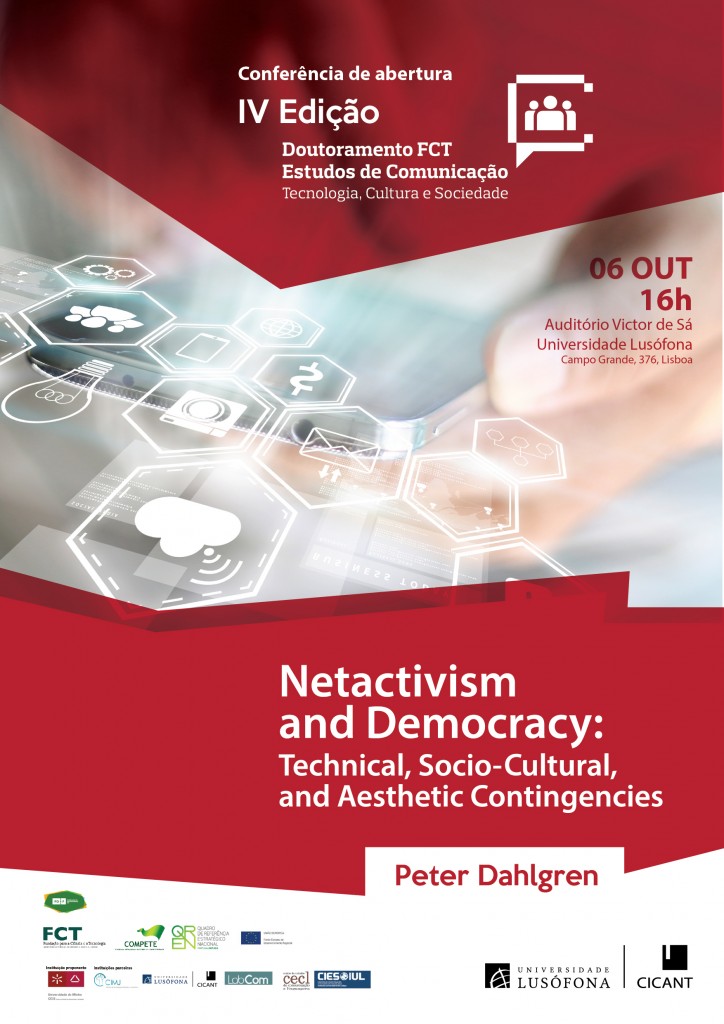Dia 6 de outubro de 2016, ULHT-Lisboa, 16:00
Local: Auditório Victor de Sá. Universidade Lusófona de Humanidades e Tecnologias (ULHT, Campo Grande, 376 – Lisboa.
Entrada livre.
Netactivism and Democracy: Technical, Socio-Cultural, and Aesthetic Contingencies
Resumo: In this presentation I will take as my point of departure the fact of political engagement and participation via the Internet (very broadly understood to include social media, mobile devices, etc.). This is a very large and heterogeneous terrain, including involvement via political parties as well as alternative groups, movements and networks. Moreover, netactivism can be found across the political spectrum.
My analytic port of entry is to highlight the various factors that make possible – as well as delimit – netactivism, i.e. its contingencies. I then try to elucidate what such contingencies mean for the dynamics of democracy. My basic trajectory is to emphasize the utility of digital media for activism and for democracy, while at the same underscoring the limits and even dangers that are embedded in these communication technologies.
I begin with technical aspects, looking briefly at the architecture of the Internet, how this shapes the online environment, and the implications this can have for activism. With socio-cultural contingencies, I turn my attention to the Web’s discursive environment, looking at some key patterns of use and modes of interaction. Not least, I treat this environment as a habitus (Bourdieu) that promotes/discourages various subject positions. Aesthetic contingencies are perhaps the most difficult to pin down, but I aim to highlight certain features about the Net’s communicative registers that are relevant for participation and the evolving character of democracy.
Nota biográfica: Peter Dahlgren é Professor Emérito do Departamento de Comunicação e Media da Lund University. Globalmente, os seus interesses de investigação debruçam-se sobre os Media e a Democracia e a Participação Democrática, com enfoque nos media digitais e no envolvimento cívico. Foi professor e investigador visitante em diversas universidades (França, Escócia, África do Sul, Estados Unidos). Muito ativo em redes e eventos académicos e europeus, é autor de inúmeras obras científicas de relevo.
